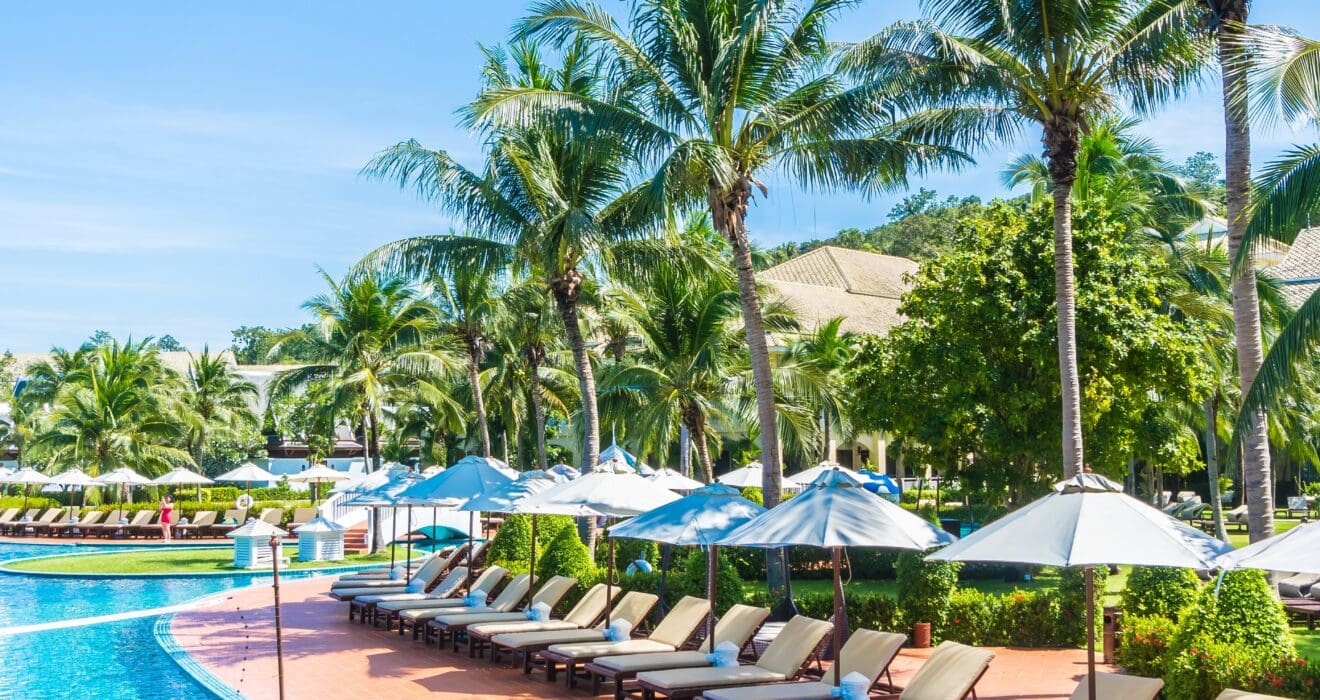PRESS RELEASE
THE SPANISH HOTEL SECTOR IS MAKING PROGRESS IN WATER SUSTAINABILITY, BUT STILL HAS ROOM FOR IMPROVEMENT
A new report by the Instituto Tecnológico Hotelero (ITH) and Bioscore analyzes water consumption in more than 500 Spanish hotels and highlights emerging good practices and challenges to be addressed.
Efficient water management is becoming a priority for the Spanish hotel sector, which is increasingly committed to sustainability. This is reflected in the report “Water Resources Management in the Hotel Sector“, prepared by the Hotel Technological Institute (ITH) in collaboration with Bioscore, based on the analysis of more than 500 establishments certified in sustainability between 2023 and 2024.
The study shows an encouraging picture: 93% of hotels already monitor their water consumption, and more than 77% have implemented water-saving measures in their daily operations. In addition, 45% of hotels incorporate water footprint calculation as a management tool.
One of the critical points identified is water reuse. Only 8% of the country’s hotels have gray or rainwater recovery systems, which underscores the need for investment in technologies to close the water cycle in tourist lodgings.
Small steps: how hotels are improving their performance
The report reveals that lower category hotels (<4 stars) lead in water efficiency, possibly due to their greater need to control operating costs. On the other hand, higher category establishments show opportunities for improvement, especially in areas such as recreational facilities.
Common initiatives include towel and sheet reuse programs, installation of energy-efficient devices and customer awareness.
International and domestic chains: two complementary approaches
When comparing national and international hotel chains, the study highlights that 88% of international hotel chains already assess water risk and define specific reduction targets, compared to 38% of national ones. Despite operating in areas of high water stress, international hotels have lower average consumption per stay, suggesting greater use of water efficiency technologies.
Looking ahead: recommendations and opportunities
The report proposes a series of best practices and strategies for the future, among them:
- Expand graywater and rainwater reuse systems.
- Optimize irrigation through sensors.
- Install pool covers to reduce evaporation.
- To bet on the circular economy as a model for water management.
- Training of personnel in sustainable management techniques and principles.
“We are seeing hotels, regardless of size or category, begin to integrate water sustainability as a fundamental part of their strategy. The road to a more sustainable hotel industry has already begun. Now it is a matter of continuing to move forward, sharing knowledge and committing to innovative solutions. “says Virginia Sarobe, director of sustainability at Bioscore.
For more information
*Download the infographic
*Download the 2023 Executive Report
*Download the complete Study
*The data analyzed correspond to fiscal year 2024 and show a positive trend. However, the results are provisional, since not all the information from the national and international hotel chains had been consolidated by the end of the study.
Tags: Bioscore, water footprint, Instituto Tecnológico Hotelero (ITH), Water Law, ITH Tourism Sustainability Model and Improvement Plans, Sustainable Development Goals (SDGs), Secretary of State for Tourism, State Secretary of Tourism




